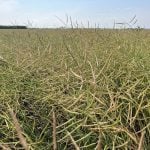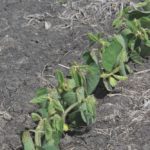
Tag Archives Person Career

Students tap into water knowledge
Students tackled water health and conservation at the latest Southwest Manitoba Water Festival September 20 near Elgin, Man.

Measuring tillage impact
There may be a middle path that gives the best results

Can organic no till work in the field?
Environmental benefit is part of organic market value, but organic weed management usually means tillage, commonly considered a black mark for soil health. Is there a middle ground?

Arkansas moving closer to in-crop dicamba restrictions
Its plant board wants an April 15 to Oct. 31 ban to prevent injury to crops from drift

Formerly parched grain now fighting moisture after September rains
2017 will be remembered as a dry year, but the latest harvest is still fighting high moisture after a series of rains in September
Infrared inspections look to curb barn fires
Farmers now have access to infrared inspections through the Manitoba Farm Safety Program
Comment: The loudest voices against tax reform are not neutral
Almost absent in the debate about proposed Canadian changes are any voices defending the idea of tax fairness

Cutting the cost of ethanol
Researchers devise a way to reduce the amount of enzymes needed to convert biomass into biofuels
EIA down, but not necessarily out, with incoming cold
The risk of spreading equine infectious anemia is slowing down as cold weather lowers fly populations, but the CFIA warns that more cases might be detected next year

Safe cooking of tenderized meat
It’s all about internal temperatures and flipping


